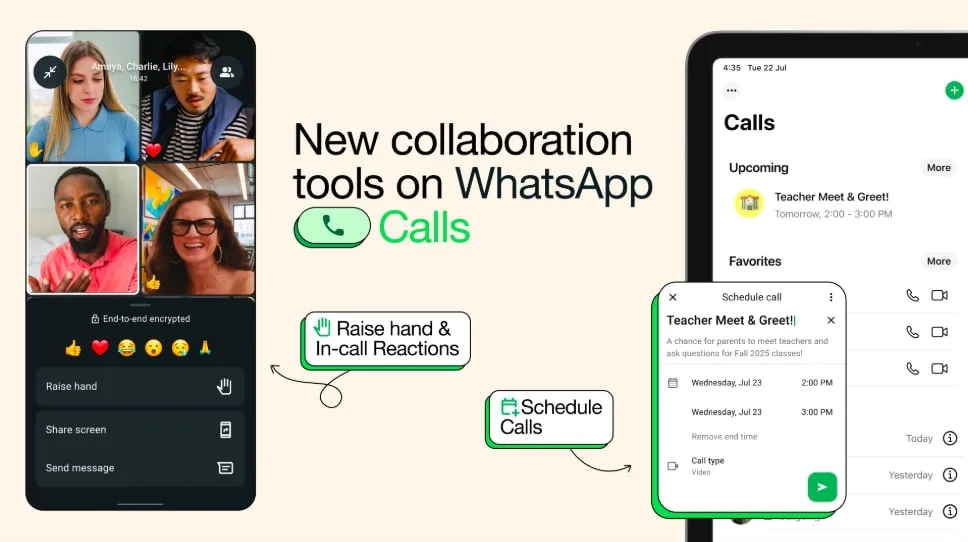WhatsApp is rolling out a major update to its group calling experience, aiming to make conversations easier to organise and more engaging, and perhaps also looking to make inroads into some business communication atleast. The Meta-owned messaging platform announced a series of new tools that allow users to plan calls in advance, track attendees, and interact more effectively during ongoing discussions.
A major highlight of the update is the ‘Schedule call’ feature, which can be accessed through the ‘+’ button in the Calls tab. This option enables users to set a specific date and time for a call, send invitations to individuals or entire groups, and share a unique call link. Once a call is scheduled, it will appear in the Calls tab along with a list of confirmed attendees. Users can also add these call links directly to their personal calendars for easier coordination.
Even to reduce the chances of anyone missing a planned discussion, WhatsApp will send notifications to all participants shortly before the scheduled call begins. This ensures both personal and professional meetings have better attendance and start on time. With this feature, WhatsApp moves closer to competing with services like Google Meet and Zoom. Scheduling calls, sending invites, and tracking attendees all within the app make it easier for people to organise meetings without using separate platforms.
Additionally, for those who create call links, the instant messaging platform has also added attendance tracking features. Link creators will now receive real-time notifications whenever someone joins the call through their shared link, making it easier to monitor participation.
Apart from scheduling, the update also focuses on improving in-call interactions. A ‘raise hand’ function has been introduced, allowing participants to signal their desire to speak without interrupting others, a tool that will be familiar to users of professional video conferencing services like Google Meet and Zoom. WhatsApp has also added reaction emojis, offering participants a way to respond instantly with visual expressions without interrupting the conversation.
But despite these advancements, WhatsApp (which in the past faced major backlash over its privacy policies) has stressed that privacy remains a top priority. All personal calls, including those made with these new features, are still protected by end-to-end encryption, ensuring that only the participants can access the conversation. The timing of the development becomes more interesting as WhatsApp faces increased scrutiny in Russia, particularly over its calling feature. Recently, authorities have restricted its voice and video call functions over alleged violations of national laws.
The Tech Portal is published by Blue Box Media Private Limited. Our investors have no influence over our reporting. Read our full Ownership and Funding Disclosure →







